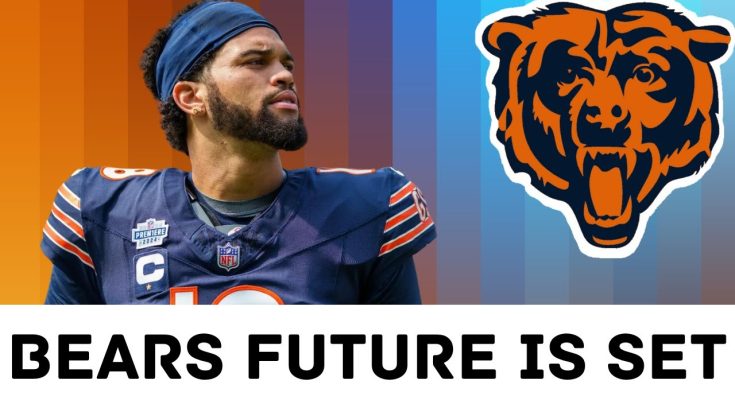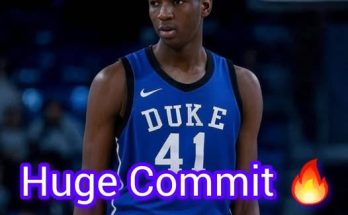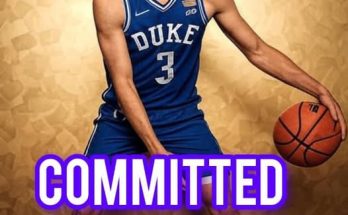When the Chicago Bears made the bold decision to invest their future in Caleb Williams, it wasn’t just about finding a talented quarterback—it was about finally answering the prayers of a franchise and its fans who have endured decades of searching for that rare, generational signal-caller. For a team rich in defensive legends but perpetually plagued by offensive inconsistency, the arrival of Williams represented a seismic shift in direction, one that promised to breathe new life into an organization desperate to compete with the league’s best on a yearly basis. From the moment he walked across the draft stage, donning the navy and orange, the excitement surrounding him was undeniable. He wasn’t merely joining the Bears; he was stepping into a city hungry for dominance, ready to crown a leader capable of taking them where they haven’t been in generations—a consistent Super Bowl contender.
Williams possesses that rare blend of physical tools and intangible qualities that make NFL scouts, coaches, and teammates believe he could be special. His arm talent allows him to make every throw, from tight-window lasers in the intermediate game to deep bombs that force defenses to respect the vertical threat. His mobility and pocket awareness give him the ability to escape pressure, extend plays, and turn broken situations into highlight-reel moments. More importantly, his leadership presence has already begun to resonate in the Bears’ locker room. Veterans have described him as calm under pressure, confident without arrogance, and relentlessly committed to improvement—traits that remind many of the elite quarterbacks who have defined NFL dynasties.
But what separates Williams from the many “next big things” that have entered the league before him is his deep understanding of the game. Even before his first NFL snap, coaches have noted his film-study habits and his ability to quickly process defensive schemes. That mental sharpness, paired with his natural athleticism, makes him dangerous in ways that statistics alone can’t capture. He doesn’t just play quarterback—he controls the flow of the game. This is where comparisons to the likes of Patrick Mahomes, Aaron Rodgers, and Tom Brady start to feel more legitimate than overhyped. It’s also why fans and analysts alike are starting to whisper about the possibility that Williams could become the Bears’ greatest quarterback of all time, perhaps even the NFL’s greatest player if his trajectory continues upward.
For Chicago, this level of optimism around a quarterback is a rare phenomenon. The Bears’ history is filled with dominant defenses and iconic figures like Walter Payton, Dick Butkus, Mike Singletary, and Brian Urlacher, yet their offensive history, especially under center, has been underwhelming compared to other storied franchises. Names like Sid Luckman and Jim McMahon have their place in team lore, but the Bears have never consistently had a quarterback who could single-handedly tilt the balance of games in their favor season after season. That’s why the idea of Williams not just breaking records but redefining what it means to be a Bears quarterback carries such weight.
It’s not just about the arm strength or the playmaking—it’s about the belief that with Williams, the Bears can finally keep pace with the modern NFL, where high-powered offenses and elite quarterbacks are almost prerequisites for Super Bowl contention. In today’s game, it’s not enough to have a solid passer; you need someone who can go toe-to-toe with the league’s best in crunch time. The Bears’ front office knows this, which is why they’ve committed to surrounding Williams with talent, from upgrading the offensive line to ensuring he has weapons at wide receiver and tight end. The hope is to give him not just the tools to succeed, but the infrastructure to sustain greatness over an entire career.
Already, glimpses of his potential have been on display in offseason workouts and preseason action. His timing with receivers has improved week by week, his command in the huddle has drawn praise, and his ability to adapt mid-play has left both fans and opponents shaking their heads in disbelief. Williams has shown that he isn’t afraid to take risks when the situation calls for it, yet he also knows when to protect the football, a balance that many young quarterbacks struggle to find. This maturity has only fueled the belief that the Bears may have struck gold.
Of course, the path to becoming the “future GOAT” is long and filled with obstacles. Williams will have to navigate the ups and downs of NFL seasons, endure criticism during inevitable slumps, and learn how to consistently deliver in the biggest moments. Injuries, changes in coaching staff, and the weight of expectations can derail even the most promising careers. But what gives Bears fans hope is that Williams seems built for this challenge—not just physically, but mentally. His calm demeanor under the spotlight and his ability to block out noise suggest that he can handle the pressures that come with being the face of a franchise, especially one as passionate and demanding as Chicago.
If he can stay healthy and continue developing, the long-term possibilities are staggering. Imagine a Chicago Bears team where the quarterback position is not a weakness to overcome, but the primary engine driving the team to success. Imagine Soldier Field—or perhaps a future new stadium—rocking in January as Williams leads fourth-quarter comebacks in playoff games. Imagine the Bears in multiple NFC Championship games, with Williams matching wits with the best defensive coordinators in the league and winning. And yes, imagine him hoisting the Lombardi Trophy, finally ending the Bears’ Super Bowl drought, and doing it more than once.
Such a reality would completely change the narrative of the Chicago Bears as a franchise. It would elevate them from a historic team with a proud past to a modern powerhouse with a bright future. Williams wouldn’t just be a great player; he’d be a cultural icon in Chicago, joining the ranks of the city’s sports legends alongside Michael Jordan, Walter Payton, and Ernie Banks. His jersey would hang in closets across Illinois, his highlights would be played for decades, and his leadership would inspire the next generation of athletes.
The impact of a quarterback of this caliber extends beyond the football field. Winning at the highest level brings economic boosts to the city, enhances the franchise’s national profile, and solidifies its appeal to free agents. Other star players will want to come to Chicago if they believe Williams can lead them to championships. Sponsors, media coverage, and fan engagement would all soar. In short, Caleb Williams has the potential to turn the Bears from a team that’s often overlooked in big NFL conversations into one of the league’s headline franchises year after year.
But perhaps most importantly, Williams has a chance to give Bears fans something they’ve been missing for far too long: hope grounded in reality. Not just the preseason optimism that fades after a few weeks, but sustained belief that their team can line up against anyone, anywhere, and win. That’s the kind of hope that changes how a city talks about its team, how kids grow up watching football, and how history remembers an era.
For now, the story is still being written. Williams hasn’t yet played a full NFL season, and the journey to true greatness is a marathon, not a sprint. But every great dynasty begins with a moment when potential meets opportunity, and for the Chicago Bears, that moment may very well be now. Caleb Williams has the tools, the mindset, and the stage. If he delivers, the phrase “future GOAT” may one day be replaced with simply “GOAT,” and Chicago could finally have the quarterback they’ve been dreaming about for generations. The city is ready. The franchise is ready. And from all indications, so is Caleb Williams.



